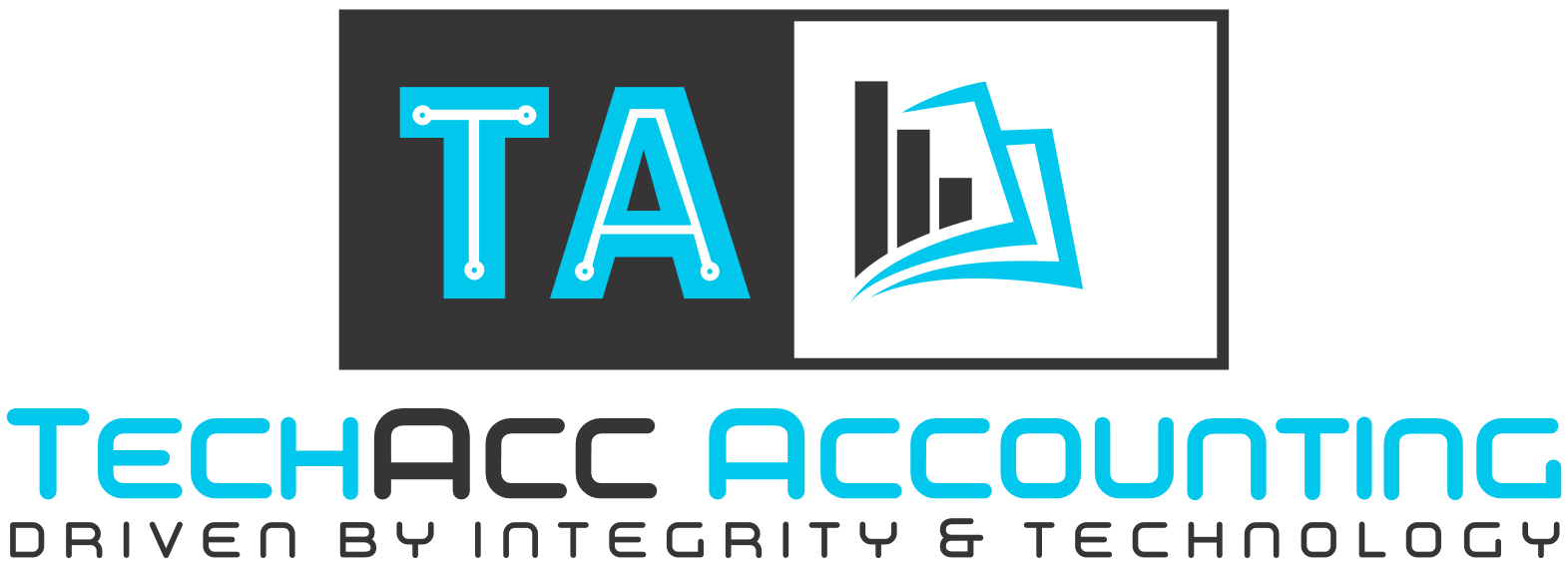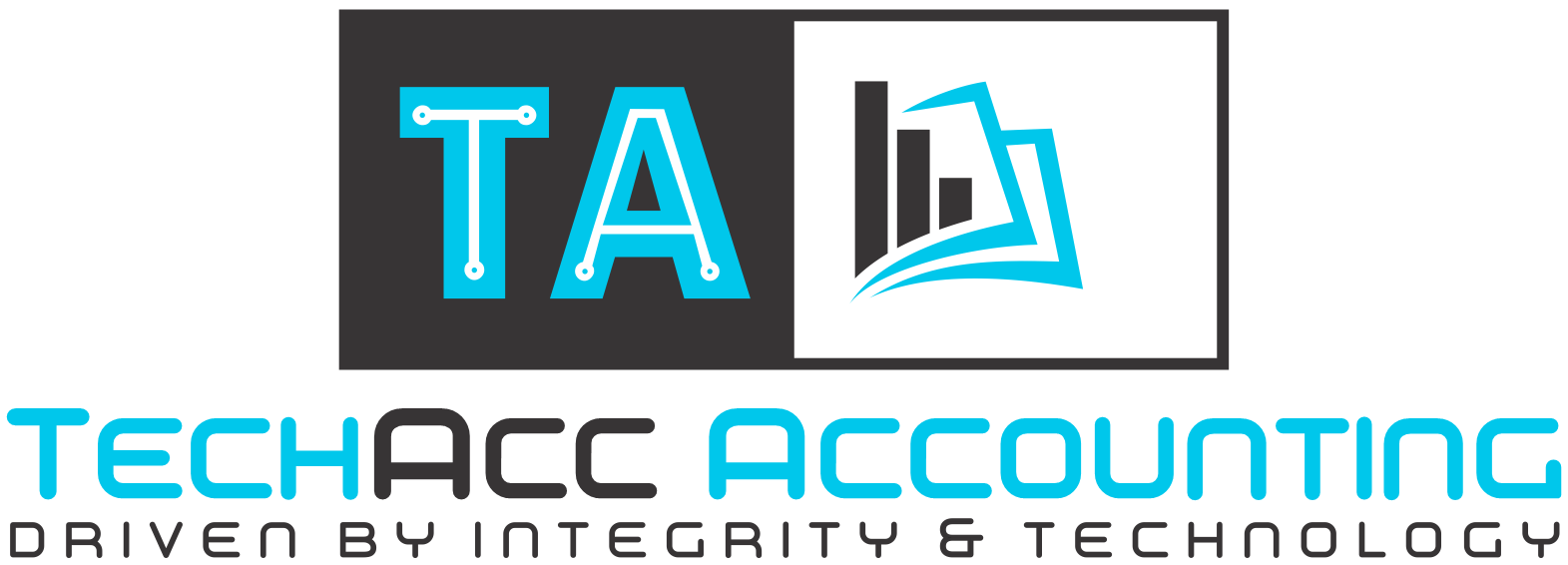
What’s the Difference Between Cash and Accrual Bookkeeping?
Bookkeeping is at the heart of every successful business. Without accurate financial records, it’s impossible to understand how your business is performing or to comply with South African Revenue Service (SARS) requirements. One of the most common questions small business owners ask is: “What’s the difference between cash and accrual bookkeeping?”
At TechAcc, a leading accountancy firm in South Africa, we regularly assist business owners in choosing the most suitable bookkeeping method. This article explains the differences between cash and accrual bookkeeping, their benefits and drawbacks, and how our team can help you make the right choice for your business.
-
Understanding Bookkeeping
Bookkeeping is the process of recording all financial transactions of a business. This includes sales, purchases, expenses, and payments. Proper bookkeeping ensures that you have accurate financial information for decision-making, compliance with SARS, and preparing financial statements.
The way you record transactions can differ depending on the method you choose. In South Africa, the two most common methods are cash bookkeeping and accrual bookkeeping.
-
What is Cash Bookkeeping?
Cash bookkeeping records transactions only when cash changes hands. This means:
- – Income is recorded when you receive money from customers.
- – Expenses are recorded when you actually pay for them.
This method is straightforward and often used by small businesses, sole proprietors, and freelancers. It provides a clear picture of the cash flow of your business, which can be helpful for budgeting and day-to-day management.
Example of Cash Bookkeeping:
If you send an invoice to a customer on 1 September but only get paid on 30 September, the income is recorded on 30 September (the date the cash is received), not on 1 September.
-
What is Accrual Bookkeeping?
Accrual bookkeeping records transactions when they occur, regardless of when cash changes hands. This means:
- – Income is recorded when you issue an invoice (even if you haven’t been paid yet).
- – Expenses are recorded when you receive goods or services (even if you haven’t paid yet).
This method gives a more accurate picture of your business’s financial performance because it matches income to the expenses incurred to earn that income.
Example of Accrual Bookkeeping:
Using the same scenario above, if you send an invoice to a customer on 1 September and only get paid on 30 September, the income is recorded on 1 September (the date the invoice was issued), not on 30 September.
-
Key Differences Between Cash and Accrual Bookkeeping
Aspect |
Cash Bookkeeping | Accrual Bookkeeping |
| Timing of Income | Recorded when cash is received | Recorded when invoice is issued (earned) |
| Timing of Expenses | Recorded when cash is paid | Recorded when expense is incurred |
| Focus | Cash flow | True profitability |
| Complexity | Simple and easy to maintain | More complex, requires careful tracking |
| Best for | Small businesses, sole proprietors, startups | Established businesses, those seeking growth |
| Tax Implications | Taxable income recognised when received | Taxable income recognised when earned |
-
Advantages of Cash Bookkeeping
- – Simplicity: Easy to understand and maintain, ideal for smaller businesses without complex accounting needs.
- – Cash Flow Management: Helps you see how much cash you have on hand at any time.
- – Lower Cost: Usually less expensive to implement and maintain than accrual bookkeeping.
-
Disadvantages of Cash Bookkeeping
- – Less Accurate Picture of Profitability: Income and expenses may not align with when they are earned or incurred, which can distort your financial performance.
- – Not Always Accepted by Lenders or Investors: Banks and investors often prefer accrual-based financial statements for decision-making.
-
Advantages of Accrual Bookkeeping
- – Accurate Financial Picture: Matches income and expenses to the period they occur, providing a realistic view of profitability.
- – Better for Decision-Making: Allows management to make informed decisions based on accurate data.
- – Preferred by Lenders and Investors: Accrual-based statements are seen as more credible.
-
Disadvantages of Accrual Bookkeeping
- – Complexity: More difficult to maintain, requiring professional oversight.
- – Cash Flow Tracking: Since income is recorded before cash is received, it may not reflect your actual cash position.
-
Tax Considerations in South Africa
The South African Revenue Service (SARS) allows businesses to use either cash or accrual basis for tax purposes, but the choice can affect when and how much tax you pay. For instance:
- – Cash Basis VAT: Some small businesses registered for VAT can elect to account for VAT on the payments basis.
- – Accrual Basis VAT: Most businesses must account for VAT on the invoice basis, which is accrual-based.
Choosing the right method can have a significant impact on your tax liability.
-
Which Bookkeeping Method Should Your Business Use?
There’s no “one-size-fits-all” answer. Your choice depends on factors such as:
- – The size and complexity of your business
- – Your cash flow situation
- – Industry standards
- – SARS requirements
- – Whether you plan to attract investors or apply for finance
At TechAcc, we specialise in helping South African businesses choose and implement the best bookkeeping method for their needs. We also offer ongoing bookkeeping, tax compliance, and advisory services to ensure your records are always accurate and up to date.
-
How TechAcc Can Help
As an experienced accountancy firm in South Africa, TechAcc provides tailored bookkeeping services that save you time and ensure compliance with SARS regulations. We can:
- – Advise you on whether cash or accrual bookkeeping is best for your business
- – Set up your accounting systems correctly from the start
- – Handle your monthly or quarterly bookkeeping and VAT submissions
- – Prepare financial statements and tax returns
- – Offer ongoing support and advice so you can focus on growing your business
By partnering with TechAcc, you’ll gain peace of mind knowing your finances are in expert hands.
-
Final Thoughts
Understanding the difference between cash and accrual bookkeeping is crucial for making sound financial decisions. While cash bookkeeping is simple and reflects real-time cash flow, accrual bookkeeping provides a more accurate view of profitability and is often preferred by lenders and investors.
If you’re unsure which method suits your business, contact TechAcc today. Our team of experts will guide you through the decision and handle your bookkeeping with professionalism and accuracy.
Keywords for SEO
- – Difference between cash and accrual bookkeeping
- – Cash vs accrual bookkeeping South Africa
- – Cash basis bookkeeping advantages
- – Accrual basis bookkeeping advantages
- – Bookkeeping methods South Africa
- – Small business bookkeeping South Africa
- – TechAcc bookkeeping services
- – Bookkeeping for small businesses in South Africa
- – Cash basis vs accrual basis accounting SARS
- – Choosing a bookkeeping method South Africa








